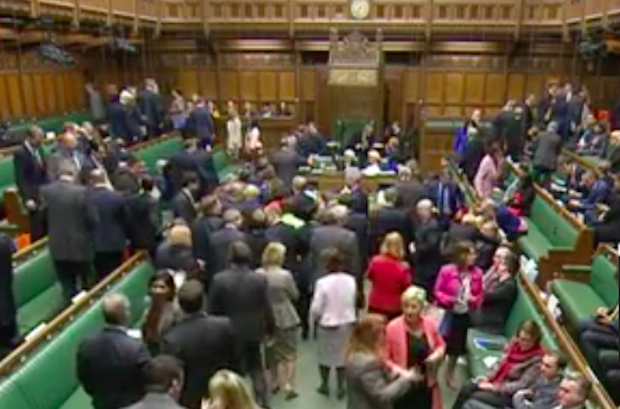The government’s Brexit bill has been given the green light by Parliament. On Wednesday evening, MPs voted in favour by 498 votes to 114 to give Theresa May the power to trigger Article 50 and begin formal Brexit talks. A separate SNP amendment to stop the bill from progressing was also defeated, by a comfortable majority of 236. The bill will now pass to the committee stage where there could be more scope for rebellion as MPs try to add amendments.
While there could still be Tory rebellions down the line, it was only Ken Clarke who broke rank and voted against the government. It was a different story for opposition parties: not even the Liberal Democrats could get all nine of their MPs into the same lobby tonight, with two abstaining. 47 Labour MPs rebelled and voted against triggering Article 50. This was a bigger rebellion than first expected, and embarrassingly three Labour whips (Vicky Foxcroft, Thangam Debonnaire and Jeff Smith) were among the rebels.
It comes as two more Labour frontbenchers — Rachael Maskell and Dawn Butler — joined Jo Stevens and Tulip Siddiq in resigning from the shadow cabinet over the party’s three-line whip. This leaves Corbyn with a logistical nightmare filling the positions. While the shadow cabinet ought to be an attractive proposition to ambitious backbenchers, this is not the case under Corbyn’s lacklustre leadership.
Clive Lewis, the shadow business secretary, has been tipped as a future Labour leader. He didn’t rebel tonight, but could vote against it at next week’s third reading if Labour’s amendments are not accepted. Should Lewis rebel, it will provide him with momentum for a leadership challenge – sweeping up support from young Labour voters who struggle to reconcile themselves with Corbyn’s position.
At PMQs, the Prime Minister hit at Corbyn’s fundamental weakness, when she declared ‘he can lead a protest, I’m leading the country’. The scale of tonight’s rebellion will leave many in Labour questioning whether he can also lead a party.







Comments